Both Barrels March 2023
- West Coast
- 22/03/2023
- Richie Cosgrove
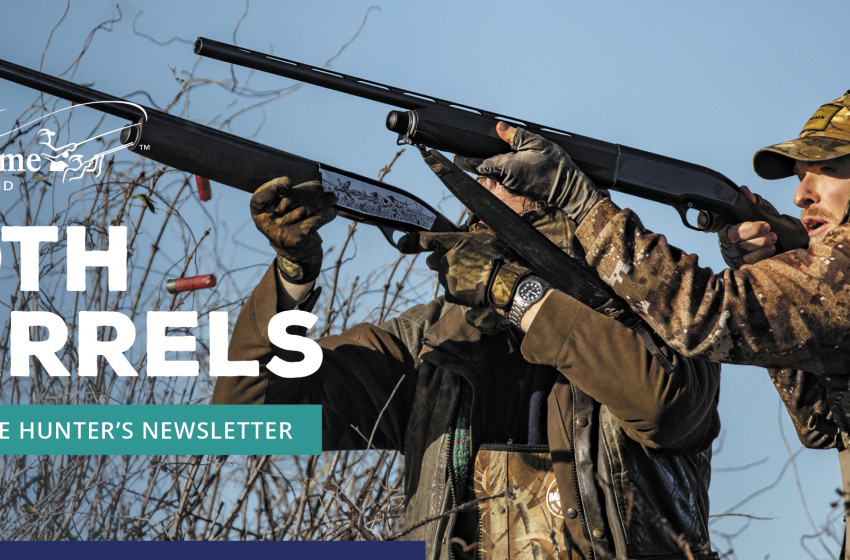
Welcome to our first Both Barrels of the 2023 hunting season.
There are only 44 sleeps till Opening Morning!!!
Saturday, May 6, looks fantastic for opening morning; duck numbers around the country are up.
All the wet weather we’ve had means that ducks have had plenty of habitat over the summer period.
Now is the time to prepare for the season; get yourgame bird hunting licence, so everything is good to go on May 6!
Pegging Day
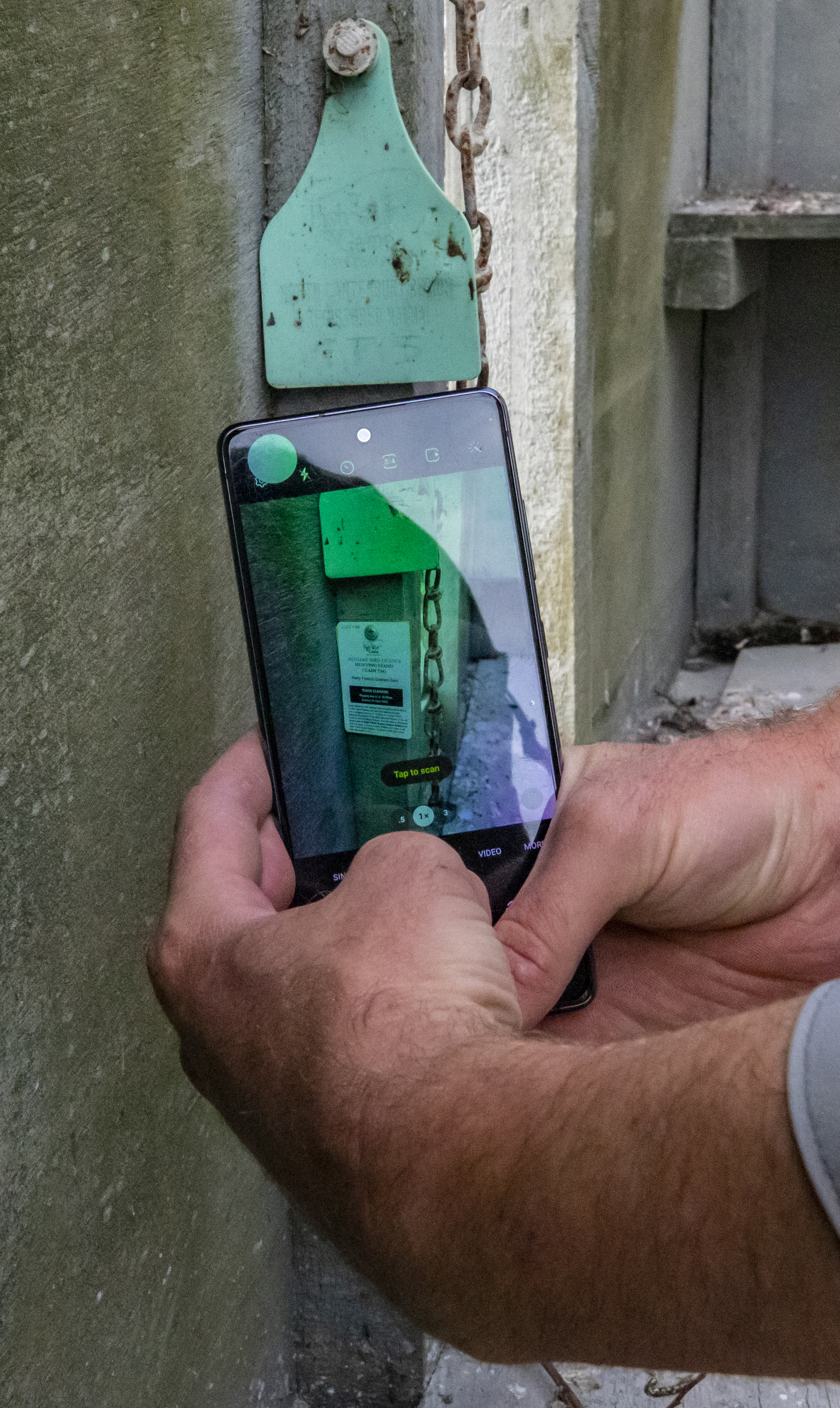
Grab a photo of your game bird tag straight after fixing it to your maimai.
Aside from opening day, another very important date for hunters is pegging or mark-up day; this year, because of Easter, pegging day is April 2.
If you are claiming a stand for the first time, you must be present at 10 am on Sunday, April 2, 2023, to ensure your claim is valid and legal.
The best thing hunters can do immediately after pegging their maimai is to photograph the tag with their phone.
If there are any disputes, the metadata on the photo has proven the ultimate arbitrator as to who pegged first.
Transporting Firearms
New Firearms Regulationscame into effect last year, clarifying rules around storing and transporting firearms and ammunition.
This will be relevant to all game bird hunters, and we suggest you familiarise yourself with the changes on the newFirearms Safety Authority’s website.
Reward your tastebuds
For hunters that missed out on getting a Fish & Game Cookbook last year, we still have some available at last year's discounted price for licence holders.
If you are wondering what it’s like? Well, a bunch of international judges thought it was so good they awarded The Fish & Game cookbook the title of best game cookbook at the International Gourmand World Cookbook Awards.
Clickhereto get your copy; you won’t be disappointed.
Set the trap, then leave.
Now is the time to be brushing the maimai, not one week out from the big day.
Ducks are naturally weary, and any unnecessary activities around the pond should be limited.
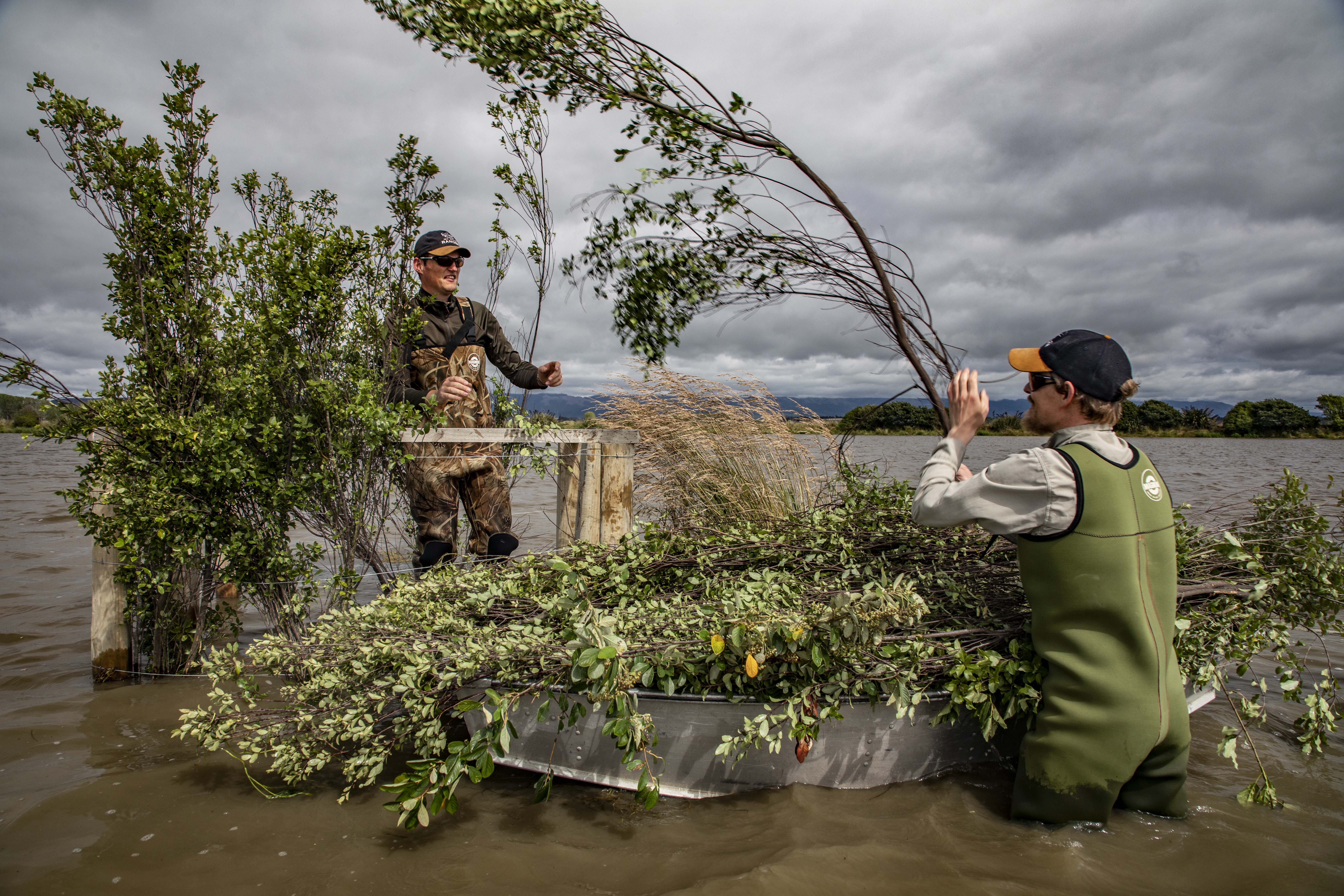
Now is the time to prepare your maimai
Every bird you put off the pond now is likely to find somewhere else to settle, and they may not return on Opening.
When brushing the maimai, be aware of the branches you are using.
Some species, such as broom, might drop viable seeds that can spread onto the neighbouring area, causing a nightmare for the local farmers.
Similarly, crack willow could quickly overwhelm your ponds, turning from nice, ducky, open water to a thick willow forest.
Manuka and kanuka are great plants, as they will often hold their leaves and colour right into the season once cut.
For those wishing to provide a lower maintenance maimai, strategic planting oftenaxflaxes can conceal the sides of the maimai.
As for the roof, there’s a solution for that too. Staple on some old mesh to the roof and walls of the maimai.
Around the back and sides of the blind, plant some pohuehue vines (Muehlenbeckia australis). This native vine is common and will quickly climb up the mesh and conceal your maimai for years to come.
Ranger recruitment
Have you ever had a Fish & Game Ranger have a chat with you while you have been fishing or hunting?
Volunteer Fish & Game Rangers make a significant contribution to the Fish & Game organisation and in managing the resources which hunters and anglers value so much.
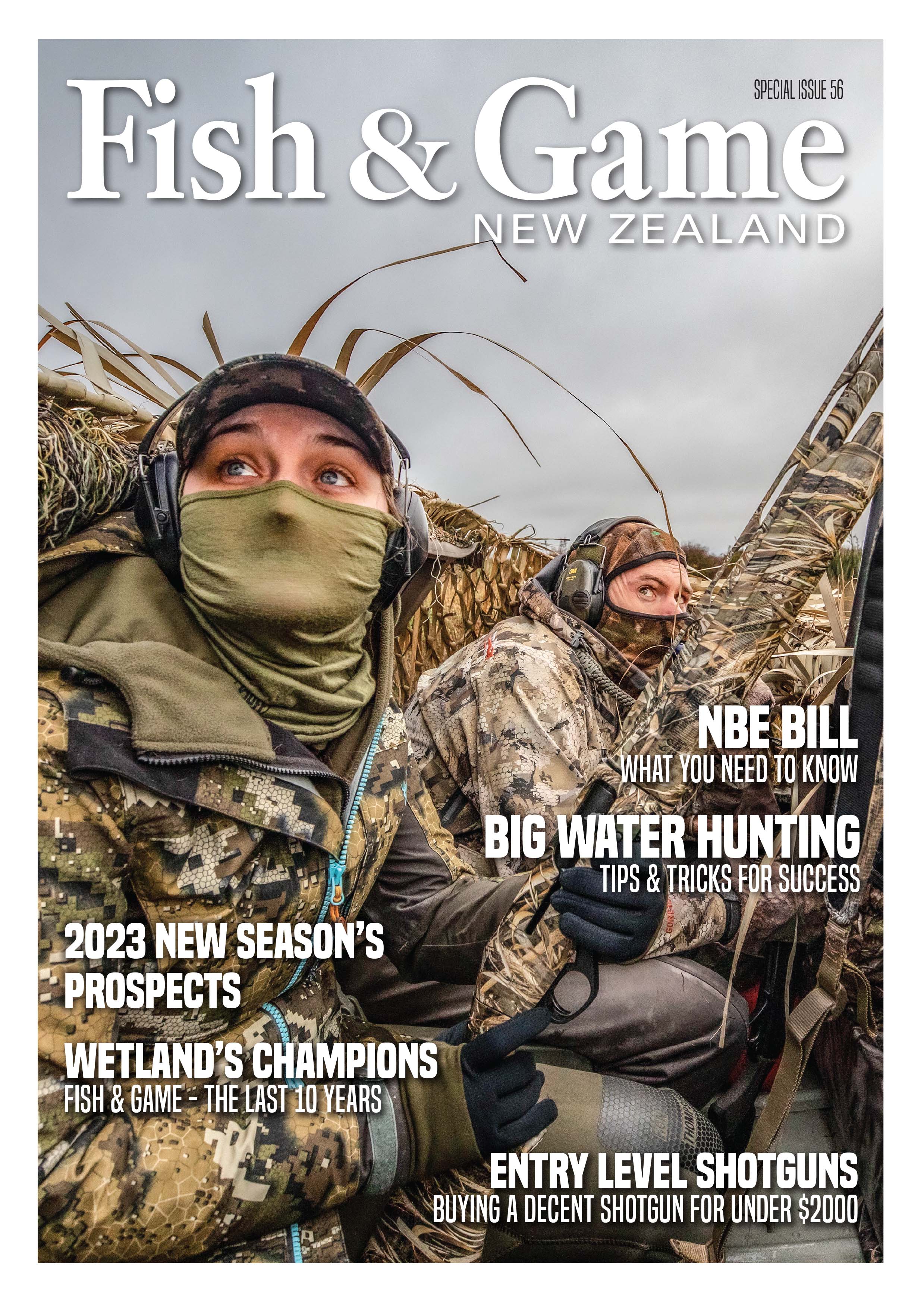 Importantly, our valued rangers provide a public relations face to our licence holders and the general public, as well as an important involvement in compliance work.
Importantly, our valued rangers provide a public relations face to our licence holders and the general public, as well as an important involvement in compliance work.
Rangers are carefully selected and trained. From time-to-time vacancies come up for volunteer rangers to join the team, so if you have ever wondered about what it might be like to be a ranger and you have a desire to contribute in this way, contact your local Fish & Game regional office to enquire or to express an interest in becoming a ranger.
Game Bird Magazine: Coming to your letterbox soon!
Packed full of helpful info, news and tips for hunters preparing for this year's game bird season, the game bird special edition of the Fish & Game Magazine is winging its way to the letterboxes now.
The magazine is automatically sent to all full-season game bird licence holders from the previous season, so keep an eye out for it.
Regional Wrap
Our staff from around the country have sent these updates to share with hunters preparing for the season.
Northland:
Summer 2022-2023 was an absolute washout for most Northlanders; however, the waterfowl are likely to have thrived in the wet conditions. The constant rainfall over spring and summer resulted in plentiful surface water available throughout the region. Mallards were observed raising broods of ducklings right into February. Airborne trend counts for Paradise shelduck, and swan showed comparable numbers to recent years. Whilst the shelduck count was slightly lower than last year, the actual population is suspected to be higher, as birds are likely to have been dispersed away from the main moult sites due to the availability of water and green feed in the region. Some cyclone damage has occurred in the wetlands managed by Northland Fish and Game, and field officers have been working hard to ensure that access is still available for hunters to get in and conduct their pre-season preparations. With licences now on sale, hunters are encouraged to get out to their stands, mark them up and get them in shape for opening weekend. It always seems to come around faster than you think!
Auckland/Waikato:
One of the wettest years on record for this region has certainly helped breeding ducks so now is the time to be thinking about preparation for the coming season.
Pegging Day has caught people out in the past. It has to avoid Easter weekend, which itself varies from year to year. So be sure to note that markup day this year is April 2 at 10 am.
You can find a link to the Gazette Notice that spells out the season conditions below. There have been several changes in this region, which will be discussed in more detail in the April edition of Both Barrels.https://gazette.govt.nz/notice/id/2023-gs693
In particular, we have persistent offenders who shoot game birds while under power. This is especially problematic on the Waikato River near Cambridge/Hamilton where there are now riverside walkways. It is assumed that anyone who has an established maimai already knows the lay of the land and where their safe backdrops are. But a speeding offender in a boat has a constantly changing horizon and the risk of possible walkers ahead screened by vegetation. Following a well-publicised recent incident of this type in the South Island, it was decided we need to act locally.
No person may shoot game from any unmoored boat on theWaikatoRiver south of the boat ramp at the confluence of theMangawaraStream and theWaikatoRiver atTaupirito the Shakespeare St bridge in Cambridge for the duration of the open season.
You can, of course, still use a powered boat to get to your location. But you can’t drift shoot in this stretch anymore. If your gun/s are not unloaded and fully secured in gun-slips for that journey, as required by law, look out! In addition to Fish & Game fines, your firearms licence status may subsequently be reviewed by police.
Eastern:
At last, a good opening to the duck hunting season. Eastern staff are predicting an excellent start to the game bird season based on our spring and summer monitoring. We have just finished duck trapping, where we managed to band 1,600 mallard and grey ducks, and if the weather had been better, we would have managed to band many more. Cyclone Hale flooded some of our key trap sites and brought down trees making access to these sites impossible. Nevertheless, we managed to do reasonably well, which is indicative of the number of birds out there. The trap sample, our spring brood counts, and our modelling all point to a great breeding season. A good breeding season usually leads to a good opening weekend. The season regulations, however, remain restrictive as the adult hen population is still low.
Paradise shelduck were looking OK until the two cyclones hit the East Coast. We are not sure how this will impact the population, but if the carnage inflicted on the paradise population by Cyclone Bola is any indication, we may be in for a few tough years with this species. Black swan, pukeko, and shoveler duck appear on par with previous years. Upland game doesn’t do too well in wet conditions, so although the populations were ok at the beginning of the summer, we are not confident that it has been a good breeding season for these species.
So, all up, it should be good waterfowl hunting, but we are not expecting easy upland game hunting.
Taranaki:
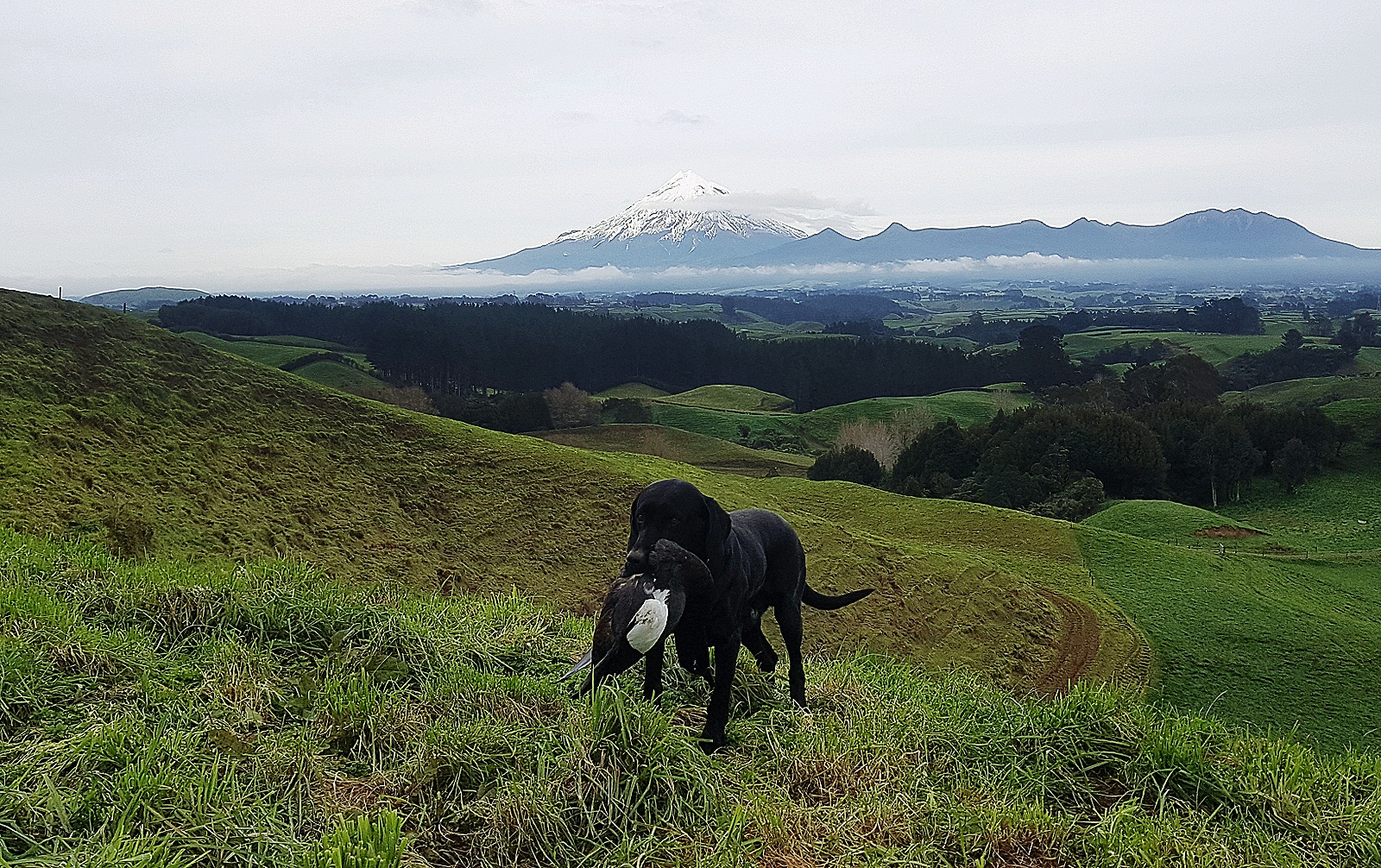
Taranaki has some great duck hunting sports-Photo: Curly McEwen
What a summer it has been for waterfowl in Taranaki – the regular rain has meant most ponds are full, and many ephemeral wetlands that are normally dry in summer are also holding water. With so much open water, ducks may be more dispersed than usual come opening weekend, but this offers new hunting opportunities on ponds or dams that you may not have thought of, which may turn out to be pretty decent shoots.
Mallard numbers are healthy coming into the season, with a positive population trend over the past few years and a good breeding season that saw broods still dotted around the place at the end of January. Given the good numbers of birds in all game management areas, Taranaki Fish & Game has increased the mallard/grey duck bag limit to 15 birds per hunter per day for opening weekend only. This allows hunters to take some extra birds for the table without significantly impacting the population. After opening weekend, the bag limit returns to the usual 10 birds per hunter per day.
Populations of paradise shelduck around the Taranaki ringplain are healthy and will provide plenty of hunting opportunities this season. The recent summer season in Area C will have dispersed large post-moult flocks of paradise, but birds will still congregate on areas of new grass and where maize silage is being fed to stock. Waimarino and Whanganui populations remain at the lower end of their historical abundance, so please consider how many parries you want to harvest for the table this season.
Wellington:
Ducks abound in the Lower North Island
Lower NI Duck Numbers Simply Superb!
Conditions in the lead-up to the coming season almost mirror what we experienced last year – a very wet spring with high rainfall also in December and well into January.
While many parts of the region – particularly Wairarapa and Manawatu – dry off after Christmas, this year, they have been green right past mid-January with a high-water table and, in many places, ponding where it should have been long gone.
Ultimately the wetter than normal summer has led to increased habitat for waterfowl and their broods.
More good news for hunters and the season prospects is that the weather conditions also mean more food has been available during the critical breeding and fledging periods, which should result in higher survival rates for this year’s ducklings.
Hunters in the lower North Island can realistically expect to see good numbers of ducks around again. The determining factor for success, though, is going to be the weather.
As we saw in 2022, winter was comparatively benign, with only two good southerlies kicking in. So, if you want to bag more birds when the conditions present themselves be sure to make the most of the opportunity this coming season.
Weekly Hunting Reports:
If you’d like the latest hunting information throughout the season, including up to date weather conditions and forecasts, tips and advice, then sign upto our weekly hunting report – the Game Bird Hunting Bulletin.
Nelson Marlborough:
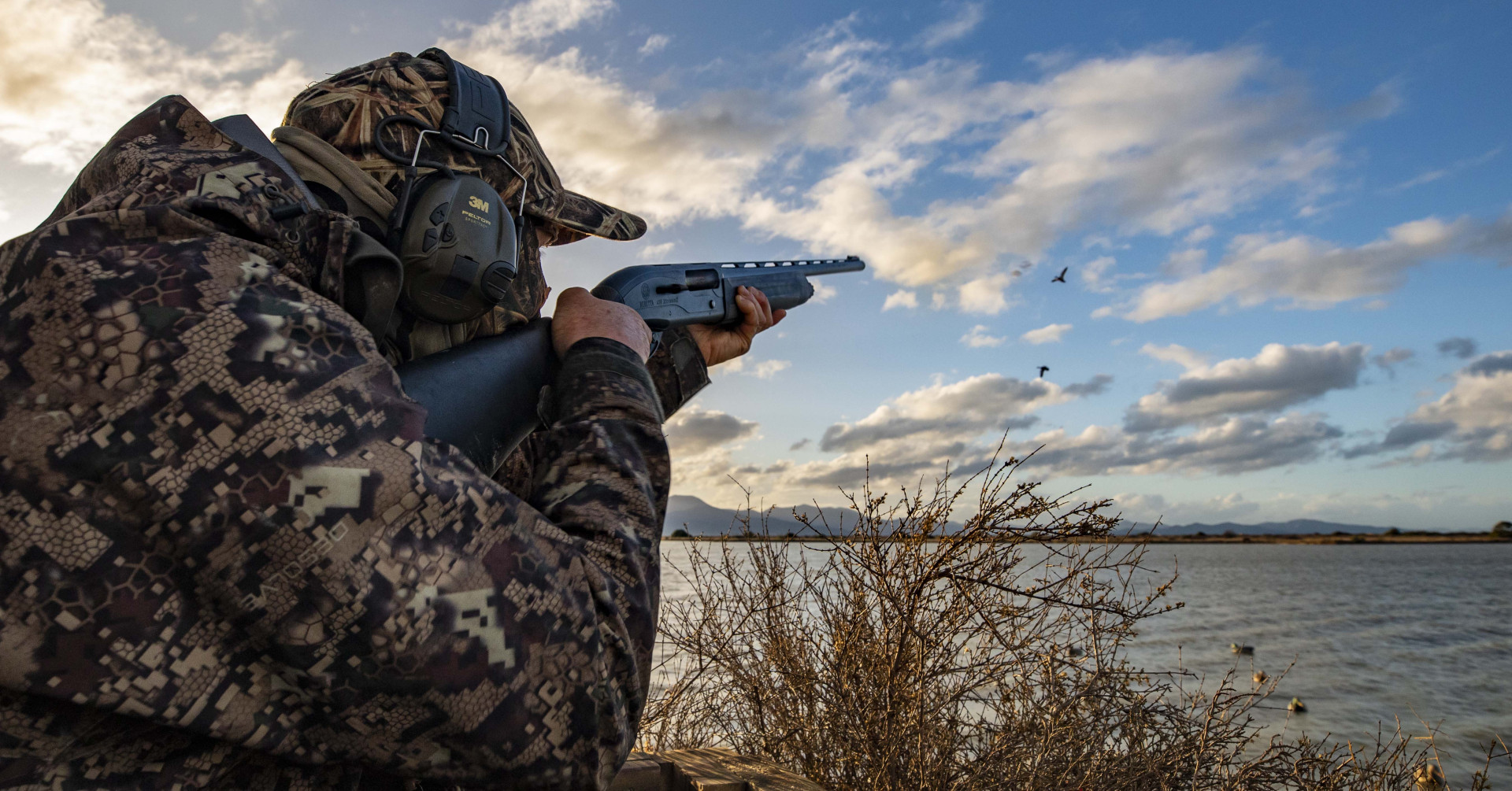
The Wairau lagoon is a great hunting spot in the Nelson Marlborough region.
After a wet Spring/Summer, we are hopeful for a lift in the mallard population, and while we have not undertaken our annual mallard monitoring at the time of writing, we expect an increase in birds in most sub-regions. Paradise duck trend counts have been completed, and bird numbers are very good in Golden Bay and Murchison sub-regions, so we expect some great hunting here. The wet summer was possibly not so good for the quail population, though bird numbers are generally high around Tasman forest fringes and within areas of exotic forestry. Keep your eye out for this year’s OneFortyOne (OFO) forests hunting arrangement, where we have four permitted hunting weekends within the OFO estate.
West Coast:
The West Coast paradise shelduck moult count was up 1000 birds than last year and over 3500 birds above the long-term average. Hunters using the summer season have had great success and have reported good numbers of greylards being observed whilst targeting paradise shelduck, pukeko and swans. Organised hunt planning is underway, with some new properties organised that will provide some fantastic hunting. Plus, a reminder to get your opening preparation done early and support your local gun club’s duck shooter shoot!
North Canterbury:
Frequent summer rain has provided one of the best breeding seasons for years in North Canterbury. The opening weekend prospects look fantastic; our joint duck flights with staff from the Central South
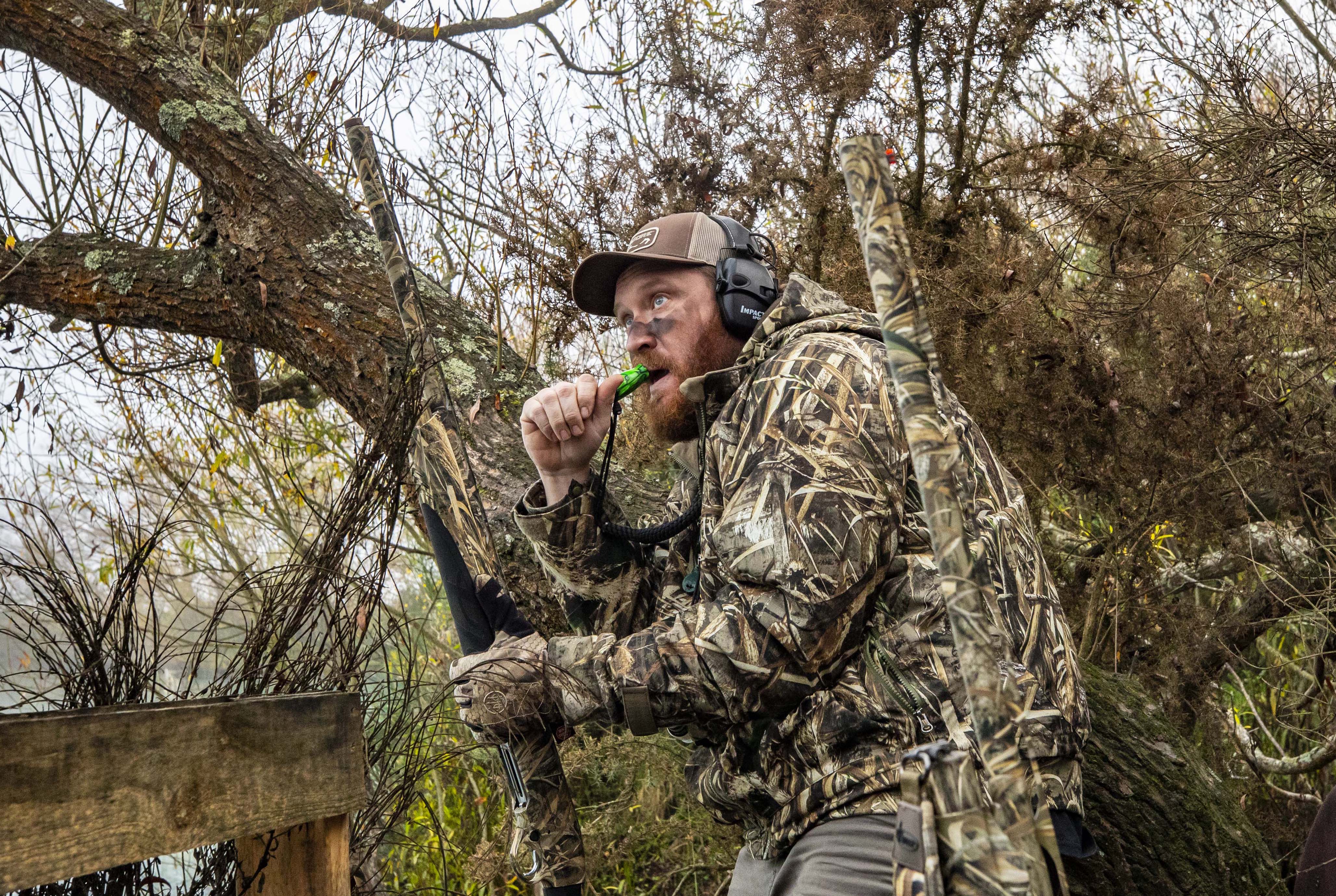
Canterbury duck numbers are high! You'll definitely be giving your duck callers a workout this season.
Island region have shown ducks to be plentiful and widespread throughout the Canterbury Duck Management Unit.
We have spent the summer doing an evaluation of the state of the registered maimais on Te Waihora/Lake Ellesmere. This hasn’t been done for several years, so it is a timely check on the condition of maimai’s on the lake. If you have a maimai out on the lake, now is the time to give it some care so that the birds get used to the changes before opening weekend.
Central South Island:
Whilst the survey data is yet to be finalised, the Central South Island staff say the annual dabbling duck monitoring flights of the Canterbury region are giving one of the highest numbers of ducks on record. All of this bodes exceptionally well for Opening Weekend in the CSI region.
Otago:
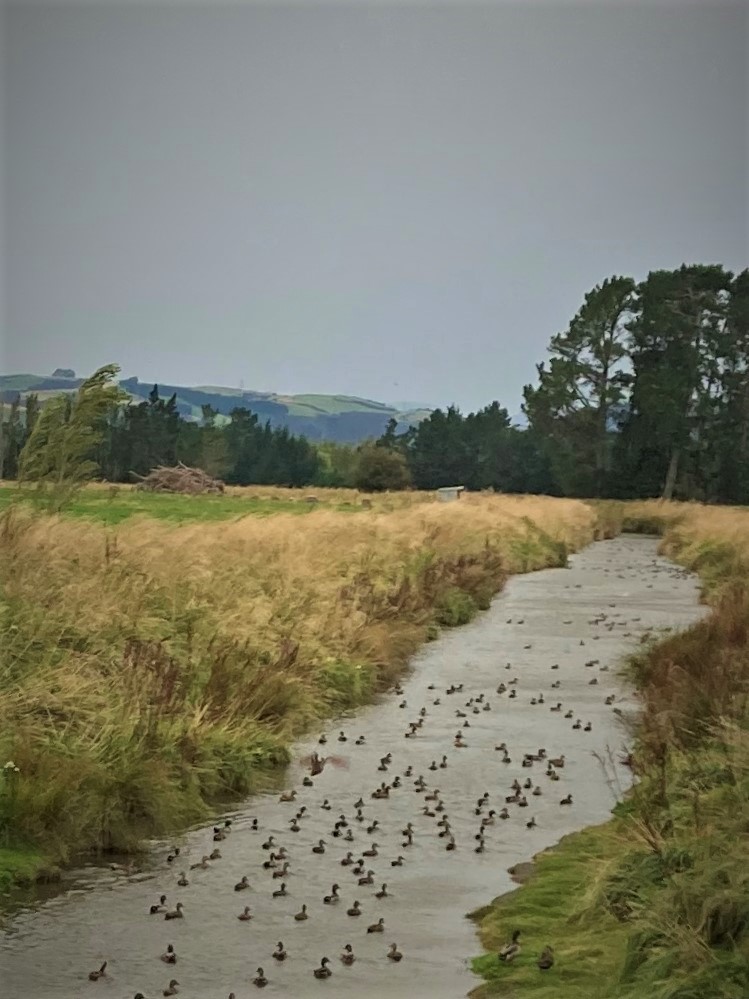
A mob of greylards on a drain on the Taieri Plain this week.
A daily bag limit of 25 mallards/grey ducks (greylards) per day reflects the excellent hunting opportunities in Otago. If you put in the time and effort, the ducks will be there to be harvested. Hunters in this region bagged an estimated 62,800 game birds last season ─ and more than 75 percent were mallards/grey ducks (greylards). Looking back across many years of data, one greylard is harvested on average per hour of hunting. Last season the harvest rate dipped slightly below average but, curiously, waterfowlers spent fewer hours hunting than normal, game bird harvest surveys found. A wet and cold spring and early summer provided average conditions for brood rearing. The paradise shelduck population is stable in Otago, long-term monitoring shows. Black swans are abundant on a few select coastal sites.
Otago has reduced the shoveler daily bag limit to one drake per day in response to a downward trend in the population of this taonga species. Greylard trend counts are conducted before each Opening Weekend. Follow us on Facebook or subscribe to our Both Barrels e-zine for updates.
Southland:
Down South, after a long and dry summer, some rain has finally arrived, and many hunters will be relieved as ponds would have received a well-needed top-up. Currently, Southland Fish & Game Staff are preparing for their annual mallard monitoring flights, and it will be interesting to see how the population is shaping up in the leadup to the 2023 season. Keep an eye out in the next edition of Both Barrels for the results from the monitoring flights.
Warm barrels,
The Team at Fish & Game